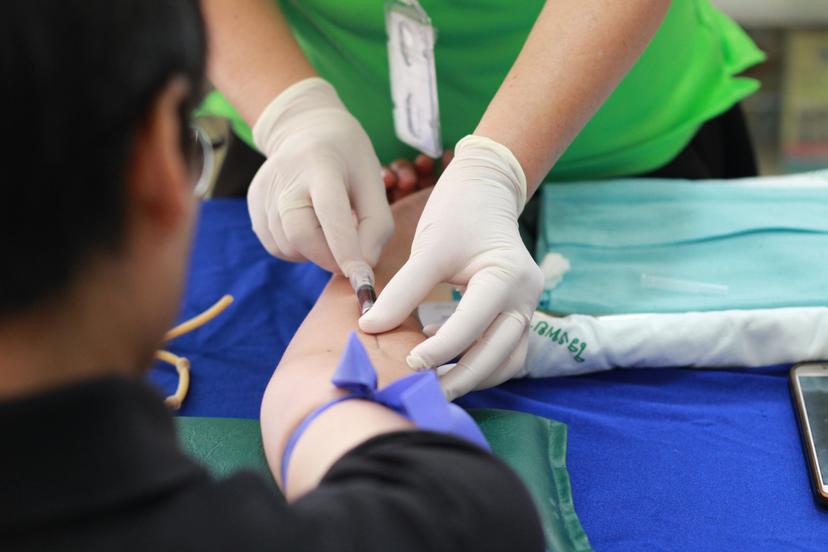
The Unseen Enemy: The Rise of Vaginal Cancer
04 Oct, 2024
 Healthtrip
HealthtripVaginal cancer, a type of cancer that affects the vagina, is a rare but deadly disease that affects thousands of women worldwide. Despite its rarity, it's essential to raise awareness about this condition, as early detection and treatment can significantly improve survival rates. In this blog, we'll delve into the world of vaginal cancer, exploring its causes, symptoms, diagnosis, treatment options, and most importantly, ways to prevent it.
Understanding Vaginal Cancer
Vaginal cancer is a type of cancer that originates in the vagina, which is the muscular canal that connects the cervix (the lower part of the uterus) to the outside of the body. It's a rare disease, accounting for only about 1% of all gynecologic cancers in the United States. However, it's crucial to note that vaginal cancer can occur in women of all ages, even those who have gone through menopause.
Most popular procedures in India
The Causes of Vaginal Cancer
While the exact cause of vaginal cancer is still unknown, several risk factors have been identified. These include human papillomavirus (HPV) infection, which is the most common cause of vaginal cancer, as well as a history of cervical cancer or vaginal intraepithelial neoplasia (VAIN). Other risk factors include smoking, being over 60 years old, and having a weakened immune system.
Wellness Treatments
Give yourself the time to relax
Lowest Prices Guaranteed!

Lowest Prices Guaranteed!
Recognizing the Symptoms of Vaginal Cancer
The symptoms of vaginal cancer can be subtle and may resemble those of other conditions, making it essential to consult a healthcare provider if any unusual changes are detected. Common symptoms include abnormal vaginal bleeding or discharge, pain during sex, painful urination, and a lump or mass in the vagina. In some cases, women may not experience any symptoms at all, which is why regular check-ups are crucial.
The Importance of Early Detection
Early detection is critical in the treatment of vaginal cancer. If diagnosed in its early stages, the 5-year survival rate is around 84%. However, if the cancer has spread to other parts of the body, the survival rate drops significantly. This highlights the importance of regular check-ups, as well as being aware of any changes in the body.
Diagnosing Vaginal Cancer
Diagnosing vaginal cancer typically involves a combination of physical exams, imaging tests, and biopsies. During a physical exam, a healthcare provider will perform a pelvic exam to check for any abnormalities. Imaging tests, such as CT or MRI scans, may be used to determine if the cancer has spread to other parts of the body. A biopsy, which involves removing a small sample of tissue from the vagina, is the most definitive way to diagnose vaginal cancer.
Treatment Options for Vaginal Cancer
Treatment for vaginal cancer usually involves a combination of surgery, radiation therapy, and chemotherapy. The type of treatment used depends on the stage and location of the cancer, as well as the overall health of the patient. Surgery may involve removing the tumor, the vagina, or other affected tissues. Radiation therapy uses high-energy rays to kill cancer cells, while chemotherapy uses drugs to destroy cancer cells.
Preventing Vaginal Cancer
While there is no surefire way to prevent vaginal cancer, there are several steps women can take to reduce their risk. These include getting vaccinated against HPV, practicing safe sex, quitting smoking, and getting regular check-ups. Additionally, women who have had a hysterectomy (removal of the uterus) should still practice regular self-examinations and consult their healthcare provider if they experience any unusual symptoms.
Raising Awareness and Breaking the Silence
Vaginal cancer is often shrouded in silence, with many women feeling embarrassed or ashamed to discuss their symptoms or diagnosis. However, it's essential to break this silence and raise awareness about this condition. By sharing their stories and experiences, women can empower others to take control of their health and seek medical attention if they experience any unusual symptoms.
Related Blogs

The Unseen Enemy: The Rise of Squamous Cell Carcinoma
Squamous cell carcinoma is a type of cancer that affects

The Uncharted Territory of Vulvar Cancer
Vulvar cancer is a type of cancer that affects the

The Uncharted Waters of Uterine Cancer
Uterine cancer is a type of cancer that affects the

The Hidden Dangers of Ovarian Cancer
Ovarian cancer is a type of cancer that affects the

Considering Alternative Therapies for Vaginal Cancer? Weighing the Pros and Cons
Vaginal cancer, a relatively uncommon but complex condition, predominantly affects

How Do Hormones Influence Vaginal Cancer? Get the Facts
Vaginal cancer, a rare form of cancer affecting the vaginal










